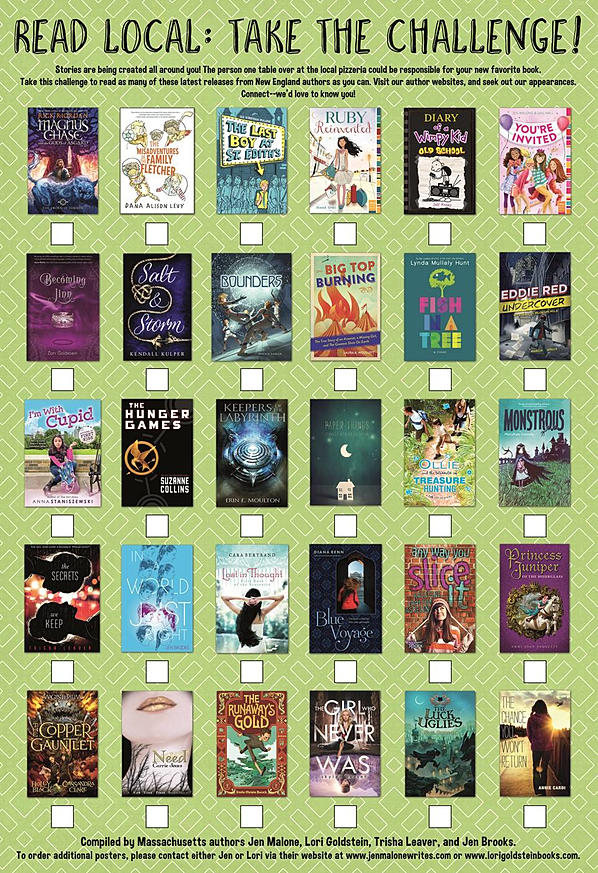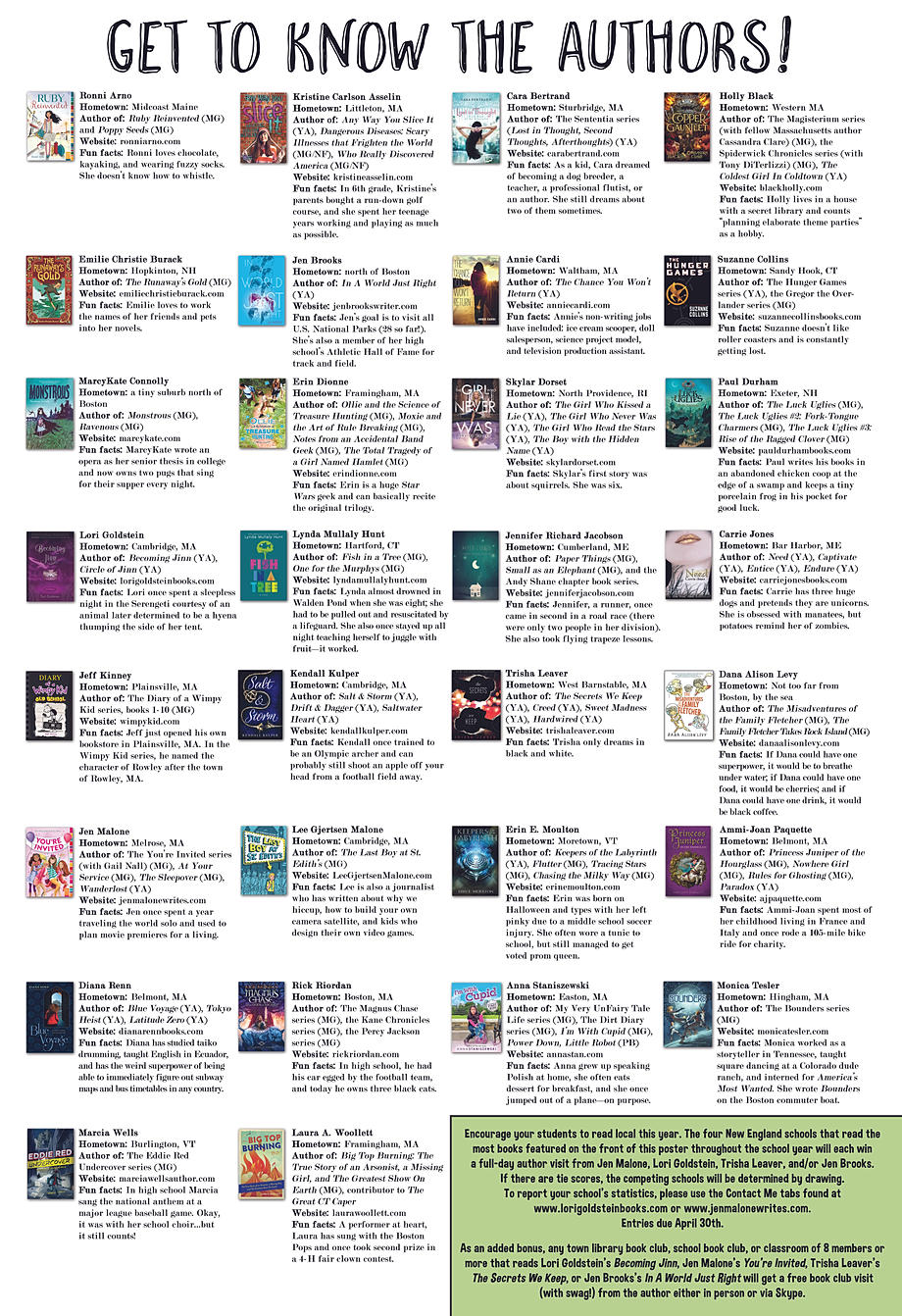New England’s a great place to be a children’s/YA author. We have a fantastic network of enthusiastic readers, booksellers, educators, librarians and fellow writers; we’re the kind of people who show up for book events even during a winter of 100+ inches of snow.
So what better place than to read local? New England educators, librarians, and readers, take the Read Local Challenge!
The logistics, from wonderful New England author Jen Malone:
The challenge is open to any school, library, homeschool cooperative, or book club and will run throughout the 2015-16 school year. Working off the poster to the right (contact me to request a free copy by mail), groups work together to read the featured titles. Each book featured is written by an author who calls New England home and is appropriate for middle school readers. (Note: some titles are classified as Young Adult. Please contact me with any questions about possible content within a particular title.)
If at least one student in the school/library/group completes a book, mark it off on the poster. In April 2016, groups will send in their tally and we’ll award the top four groups an author visit by one of the four sponsoring authors. If more than four groups achieve the highest possible score of 30/30, we will hold a drawing to select the winning group.
How cool is that? I’m beyond excited to see The Chance You Won’t Return on the list, along with awesome books like Monstrous, Fish in a Tree, Becoming Jinn, The Hunger Games, and more.
To get started, click through, get the poster, and start reading local!

